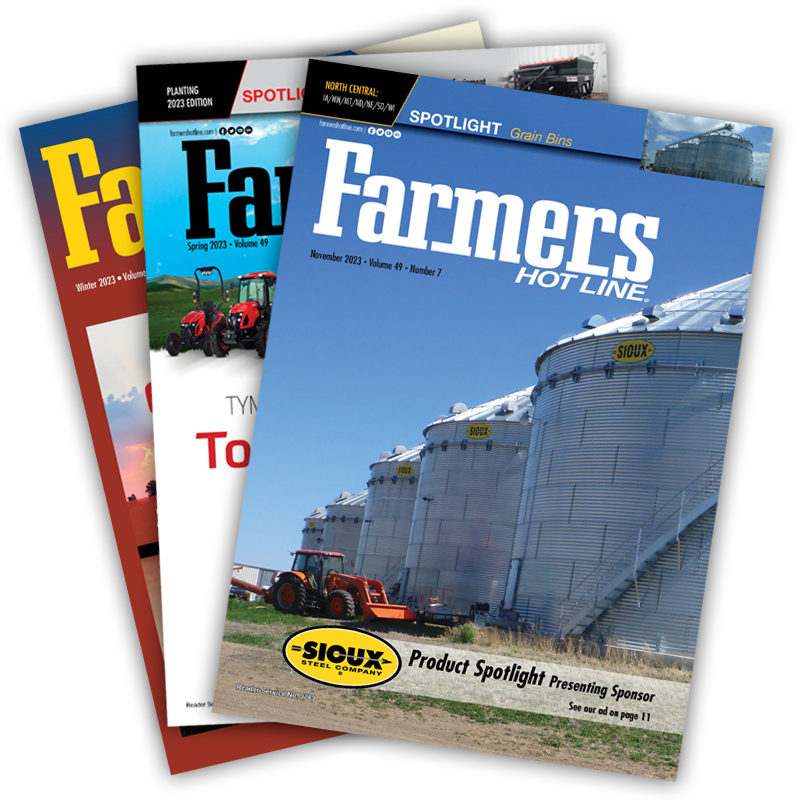The Vital Role of Farm Dogs
With the resurgence of the homestead movement and the revival of small family farms, there is a growing recognition of the indispensable contribution of working farm dogs. Throughout centuries, these diligent canines have been instrumental in the prosperity of farmers, emerging as assets for any farmer or rancher.
Beyond mere companionship, farm dogs are vital allies in livestock management, property safeguarding and overall farm efficiency. Whether it’s the steadfast livestock guardian dogs (LGDs) or the adept herding breeds, the versatility and significance of farm dogs shine brighter than ever before.
Livestock Guard Dogs
LGDs are essential for protecting livestock from predators. Breeds such as the Great Pyrenees, Anatolian shepherd and Maremma sheepdog are known for their dedication and effectiveness. Great Pyrenees are recognized for their calm demeanor and loyalty, making them excellent protectors against predators like wolves, coyotes and bears.
With their strong territorial instincts, Anatolian shepherds are equally adept at safeguarding livestock. At the same time, Maremma sheepdogs, with a history dating back to ancient Rome, are trusted guardians of sheep, goats and other livestock. The less well-known Karakachan, a historic Bulgarian breed that arrived in the U.S. in the early to mid-2000s, deserves an honorable mention. Depending on where you live, you may see a specific LGD breed that is more prominent than others and some of these breeds are also good options for family guardian dogs (FGDs). FGDs learn to bond with the property and can be excellent for families with children who want dogs to accompany them outside.
Herding Dogs
Herding dogs are indispensable for moving livestock efficiently. Breeds like the border collie, Australian shepherd and corgi excel in this role. Border collies, renowned for their intelligence and work ethic, are masters at controlling sheep and cattle with hypnotic eyes.
Australian shepherds are versatile and energetic. They can handle a variety of livestock, including sheep, goats, cattle and poultry. Some people mistake these two breeds, as their coat colors and general size can be similar. But anyone who knows these dogs knows they have many distinct differences. From personality to general build, a true herding dog enthusiast can easily distinguish between the two.
Despite their small size, corgis are tenacious herders adept at keeping cattle in line with their unique herding style. Being low to the ground allows them easy access to the heels of larger livestock.
Cattle Dogs
Cattle dogs, specifically trained to manage and drive cattle, are vital on many farms. The Australian cattle dog, or heeler, is known for its stamina and toughness, making it excellent at controlling large herds. Kelpies are highly prized for their versatility and endurance and are highly energetic and capable of working in extreme conditions. The hanging tree dog, a hybrid breed developed for ranch work, is agile and intelligent, ideal for herding cattle in challenging environments. If anyone has ever seen a 30-pound dog run headstrong towards a 1200-pound animal, it certainly can make your heart skip a beat if you are unfamiliar with how brave and intelligent these dogs are.
Farm Dogs Enhance Agricultural Operations
The value of a well-trained farm dog is immeasurable. These dogs increase the efficiency of daily operations and provide round-the-clock protection for livestock, offering farmers peace of mind. Beyond their work, farm dogs provide companionship and emotional support, becoming integral members of the farming family. Farm dogs help save money and increase the farm’s profitability by reducing the need for additional labor and protecting valuable livestock, making them a sound investment in sustainable farming.
As the homestead movement and small family farms continue to flourish, the resurgence of working farm dogs highlights their timeless value. From protecting livestock to herding and driving cattle, these dogs are indispensable allies in the agricultural world. Their intelligence, loyalty and hard work enrich farm operations and the lives of the families they serve.
Embracing the tradition of working farm dogs is not just a nod to the past; it’s a vital component of modern sustainable farming.


